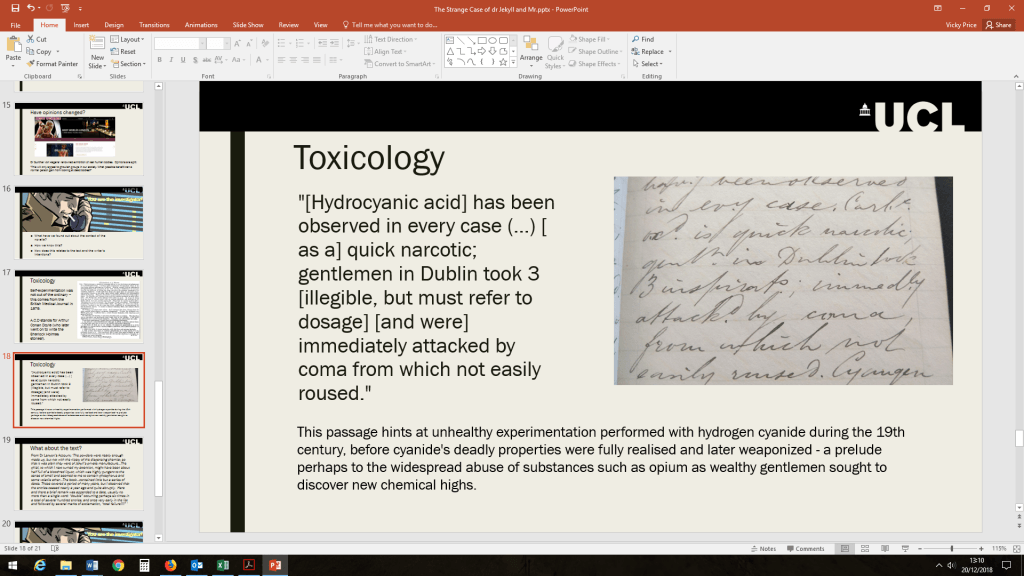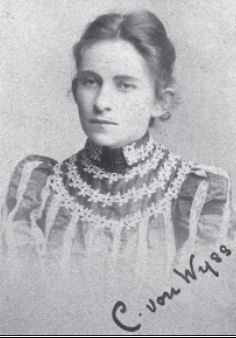Special Collections for Schools: a continuing programme
By Helen Biggs, on 25 January 2019
January is always a good time to reflect on our achievements and look forward to our upcoming plans and projects. Read on to discover some of the Outreach team’s highlights from last year’s Special Collection’s schools programmes – and what to expect from them next…
Teacher CPD with First Story

Helen Biggs from UCL Special Collections and Jay Bhadricha from First Story preparing for the visiting teachers.
Last year we built on our valuable relationship with the charity First Story to devise a CPD event for GCSE English Language teachers. The event sought to help teachers develop ways of enabling pupils to write creatively on topics they know little, or nothing, about (in response to current GCSE examination expectations), using Special Collection items as examples of prompts.
We’re running this event again (only bigger and better!) on the evening of Tuesday 19 March. If you are a Secondary school English teacher and would like to attend, you can get tickets here.
Curriculum Support for Secondary Schools
Our vision for 2019 is to develop school relationships in a strategic way. We want to reach as many young people as we can, sharing the incredible collection that we look after, with meaningful, enriching experiences; one way to do this is to develop a ‘menu’ of curriculum relevant workshops that schools can book with us.
We have a team of volunteer researchers helping us to find unique items that are relevant to curriculum areas and once we have made the resources and planned the workshops we will pilot them with the schools with whom we have a close working relationship.

A slide from the PowerPoint for the Year 11 session on Stevenson’s ‘The Strange Case of Dr Jekyll and Mr Hyde’. It features a section of a Toxicology lecture from UCL (Christison, Robert, 1831, Christison Lecture Notes, MS ADD 316) regarding gentlemen’s recreational experimentation with Cyanide. This was found by a volunteer researcher.
An example is our session for GCSE pupils that explores the context of Stevenson’s The Strange Case of Dr Jekyll and Mr Hyde.
We recently piloted it with Year 11s at East London Science School.
We have also developed a workshop on the context of Mary Shelley’s Frankenstein. Our vast collections covering British and European medical history have meant the session features unique resources; surprise and intrigue abounds in Year 10 classrooms as they learn about the practice of body-snatching, and just why Carswell’s drawings are so important!
School 21: Real World Learning
For the second year running, we are working with School21 in Newham to participate in their Real World Learning programme. This provides both students and their host workplaces with something that is more meaningful and authentic than a traditional work experience programme. For a term, two Year 12s are spending half a day each week with UCL Special Collections, solving an authentic problem for the department.
Last year’s participants worked to develop a crowdfunding campaign to raise funds to conserve and digitise selections from UCL’s collection of student magazines (from the College Archive). We’re excited to see what their successors Munna and Umar will do this year; we have given them the task of creating welcome resources for a new landing page on our website.
UCL Special Collections Summer School – Protest in Print
After the success of 2018’s UCL Special Collections Summer School, we are happy to announce that we were successful in our bid to Widening Participation to run another programme this summer.

Work produced by students at last year’s Summer School, focussing on an item from the Small Press Collection
This year we are taking inspiration from the Slade Small Press project Visions of Protest, which aims to provide a forum to examine the status of contemporary protest in Small Press Publications. UCL Special Collections’ Summer School, Protest in Print, will be a smaller, more compact and easier to access iteration of this.
Protest in Print will offer participants an opportunity to be creative and hands on, applying what they learn about small press publications (such as those in the Little Magazines and Alternative Press collections) archives and rare books in practical ways. The result will be a public exhibition of their work alongside a display of examples of collection items that have inspired their work in the South Junction Reading Room – watch this space for dates and times!
Shrouds of the Somme
The biggest achievement of the Autumn Term was also undoubtedly our highest profile project to date: working as partners in the Shrouds of the Somme installation at Queen Elizabeth Olympic Park, alongside other organisations such as the Commonwealth War Graves Commission and the London Legacy Development Corporation. We delivered an education programme to schools in the Park’s neighbouring boroughs, reaching almost 1000 pupils. We wrote a blog about this project as part of our department’s Advent Calendar – to read more, click here.
Text by Helen Biggs and Vicky Price.
 Close
Close



